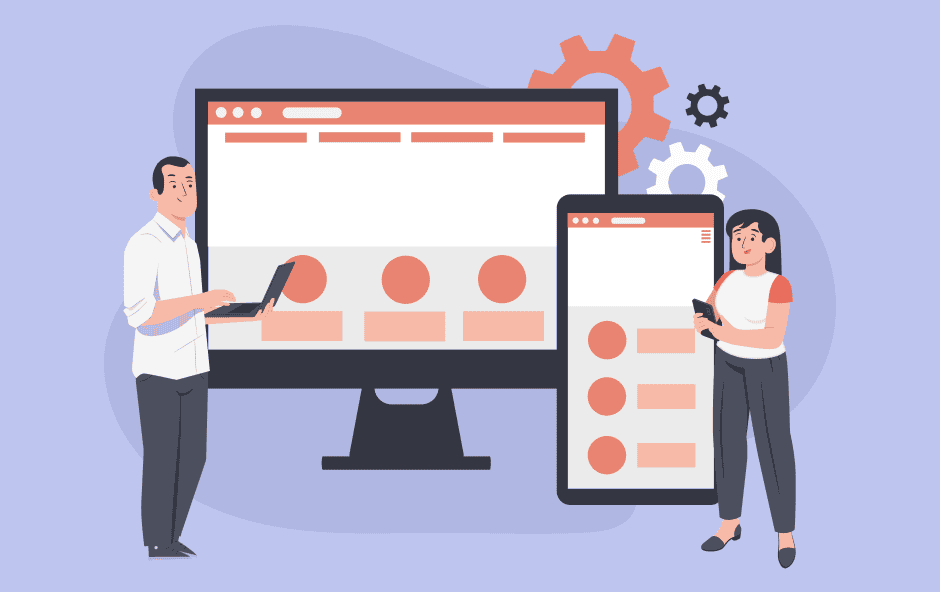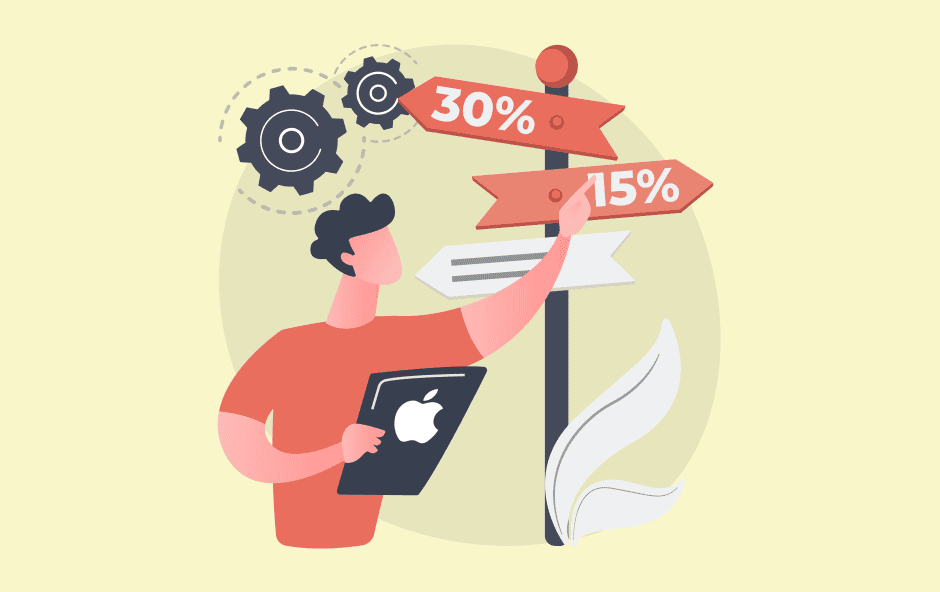When you want to develop an app, one of the first questions is if the app is going to be developed as native or hybrid. As experienced app developers, we would gladly guide you in the right direction when making that choice. Are you going to choose a native or hybrid app? In this article, we are going to explain the difference between native and hybrid app development.
What’s in a name
The meaning of the word ‘’native’’ is related to a specific place. Meaning that it is part of a closed group. A native app is in that case also a ‘’closed group’ or in other words: platform-specific. A native app is developed for one specific platform, for Android or iOS.
The word ‘’hybrid’’ is probably already recognizable from the ‘’hybrid’’ cars. With hybrids, two techniques are combined. For hybrid cars, the engine uses two technologies to stimulate the engine: electricity and fuel. Does this mean that hybrid apps also make use of multiple techniques? Correct! A hybrid app utilizes techniques that are compatible with both platforms, Android, and also iOS to publish them.
What is a native app?
Native apps are made for one specific platform so they are developed in one specific computer language. Apps for iOS are developed in Swift or Objective-C, while Android apps are programmed in Java or Kotlin. Because native apps are developed for one specific platform, they operate perfectly and act exactly how the user expects it. So: do you want a native app for iOS and Android? Then the app should be developed twice in two different computer languages.
The advantages of a native app
- Native apps are user-friendly because they are specifically developed for one platform
- Native apps have in general a higher performance. They often have direct access to hardware which leads to better performance.
- A native app has access to all functionalities of a smartphone. Think about things like the camera, GPS, notifications, Bluetooth, or microphone.
- Native apps have good integration possibilities and exchange data with other apps.
- Native apps have to meet the safety regulations of the chosen platform, which makes native apps safer in general compared to hybrid or web apps.
The disadvantages of a native app
- A disadvantage of native apps is that there is one app developed per platform.
- Because there has to be development for two operating systems, the starting costs of native apps are higher.
- You have to know at least two computer languages to maintain the app.
An example of a native app developed by DTT is the VoNo app. VoNo lets its users make memos in the fastest way possible: text memos, audio memos, voice-to-text memos, foto memos, and reminders on the agenda. VoNo focuses entirely on the user-friendliness and speed, the native technology helps to create the best results for the VoNo app. Because of the native technology, we can use the microphone, the camera, and Bluetooth to its full potential. Later on, it will be possible to voice record memo’s with a Smartwatch. When choosing the right technology, it’s important to look further into the future. You want to prevent having to build your app from scratch again because the chosen technique isn’t compatible with your future plans. Curious about other native examples? Check out the native portfolio of DTT.
What is a hybrid app?
Hybrids are at first glance very similar to native apps. Just like native apps, you can download them in the app stores, the biggest difference however is, hybrid apps aren’t written in the native languages. Hybrids are written in a separate language (via framework), which is understandable for iOS and Android operating systems.
The advantages of a hybrid app
- A hybrid app operates on iOS and Android devices.
- There is no need for two separate developed apps, these reduce the development hours and makes it cheaper.
- Hybrid frameworks usually support popular computer languages. This makes the code easily transferable for future development.
The disadvantages of a hybrid app
- With a hybrid app, you are completely dependent on third parties to maintain the hybrid framework, fix bugs, and update for new operating systems. Maybe you are still familiar with the hybrid framework ‘’Phonegap’’. This platform used to be super popular, but now the framework has ‘’ died off’’. This makes clear that when you own a Phonegap project, you can’t develop it further.
- A hybrid app is always months behind a native app. There are regular updates for Android and iOS, including updated hardware, new functions, and modernized design. Google and Apple allow access to the native community for the functions of these new releases. The hybrid community can only change things after the update, which can take months.
- Hybrid platforms usually use old native frameworks to ensure compatibility. It is hard to work with these frameworks and they are less safe because Apple and Google no longer update them. This can result in safety problems.
- A hybrid app can, depending on the used framework, have limited offline usages.
- Hybrid apps have a lesser performance than native apps. Under the right circumstances, hybrid can be the best choice. Based on a good discussion and with the right insight, a choice can be made between hybrid and native.
An example of a hybrid app made by DTT is the King Penguin Greenpeace AR game. This hybrid app is developed to create more awareness for the protection of the Southpole sea, the habitat of the penguin. Another example of a hybrid app made by DTT is the Edu Play Book app. Edu Play Book takes children on an educational adventure and consists of educational mini-games, an educational report, more than 100 audio stories in 10 different languages, and an interactive bedtime story: Sleepy Night. Because of the use of Unity, the app has beautiful and vibrant animations. Curious about other hybrid examples? Look at other hybrid apps made by DTT.
What is the best option for your organization?
After reading about native- and hybrid apps, you’re probably wondering which one is better? Native or Hybrid? Multiple aspects play a part in that decision and the choice between native or hybrid app development isn’t that simple. It’s a question best answered by an expert. Compare it with taking out a mortgage, when visiting a mortgage expert. DTT is such an expert when talking about (native or hybrid) app development. We are specialized in both and will advise you accordingly.
Are you interested in a native app? Then read this article about the difference between Android and iPhone for app development. Do you want to know more about a Progressive Web App (PWA?) Then read this article about the pros and cons of Progressive Web Apps (PWA).
Are you curious if a native or hybrid app is the right choice for your organization? Feel free to contact us!









